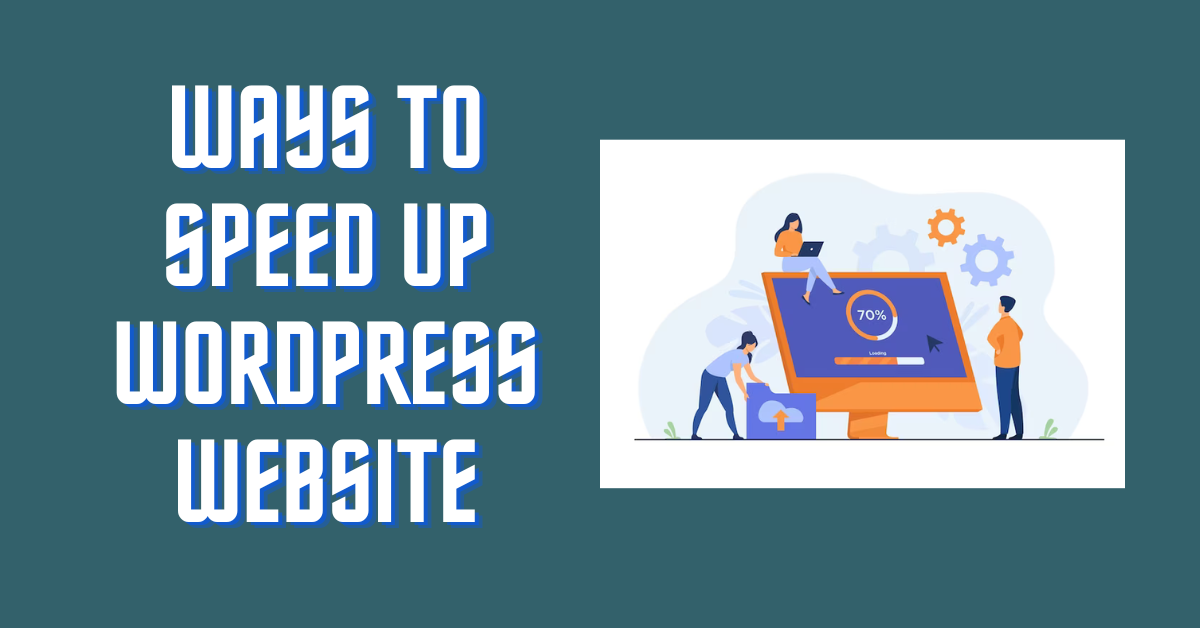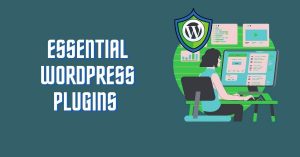Website speed is a crucial factor in achieving better search engine optimization (SEO) and improving user experience. A slow website can lead to a high bounce rate and low engagement, which can negatively impact your website’s ranking on search engines.
In this article, we will discuss various ways to speed up WordPress website and enhance its performance to boost your SEO efforts and attract more traffic. From optimizing images to utilizing caching plugins, we will explore practical and effective methods to ensure a fast and seamless website experience.
Table of Contents
Ways to Improve WordPress Website Speed
In this section, we will explore various ways to improve the speed of your WordPress website, from optimizing images to leveraging caching plugins. By implementing these techniques, you can enhance the performance of your website and ensure a fast, seamless experience for your users.
1. Optimize Images
Images are often the largest files on a website, and optimizing them can significantly improve website speed. By compressing images, reducing their file size, and using appropriate image formats you can speed up WordPress website.
Compressing images reduces the size of the files without sacrificing quality, which reduces the time it takes for the server to send the images to the user.
Additionally, using appropriate image formats, such as JPEG for photographs and PNG/WEBP for graphics, can also improve WordPress website speed.
Optimizing images is an important step in improving the overall speed of a WordPress site, which can have a positive impact on SEO.
2. Use a Content Delivery Network (CDN)
A Content Delivery Network (CDN) is a network of servers that are strategically placed around the world. They store a copy of a website’s files and deliver them to users based on their location, which reduces the load time of a website.
Using a CDN can greatly improve WordPress website speed by reducing the distance that data has to travel from the server to the user.
This results in a faster website and a better user experience, which can have a positive impact on SEO.
Additionally, using a CDN can also improve website security by reducing the risk of DDoS attacks and other security threats.
3. Use a Caching Plugin
Caching plugins store a static version of a website, which reduces the amount of work the server has to do when a user visits the website. This results in faster load times and improved website speed.
Using a caching plugin can greatly speed up WordPress website by reducing the amount of data that has to be processed each time a user visits the website. This results in a faster, more user-friendly website that is optimized for search engines, which can have a positive impact on SEO.
There are many caching plugins available for WordPress, and it is important to choose the one that is best suited for the needs of the website.
If you would like to know more about best WordPress plugins to speed up website, check out our article on 15 Essential WordPress Plugins.
4. Minimize HTTP Requests
Each time a user visits a website, the server has to send several HTTP requests to display the content. Minimizing these requests can significantly improve WordPress website speed.
This can be done by reducing the number of files on the website, such as images, scripts, and stylesheets, and combining multiple files into a single file. Additionally, using tools like Gzip compression can also reduce the size of the data that is being sent between the server and the user, which results in faster load times and improved website speed.
Minimizing HTTP requests is an important step in improving the overall speed of a WordPress site, which can have a positive impact on SEO.
5. Minimize the Use of Plugins
Using too many plugins can slow down a website. It’s important to only use the plugins that are necessary and to minimize their use as much as possible.
Plugins that are not frequently used or are no longer necessary should be deleted to reduce the number of files on the website, which can improve WordPress website speed.
Additionally, plugins that are not properly maintained or updated can also slow down a website. It’s important to keep plugins up-to-date to ensure that they are functioning properly and not negatively impacting website speed.
Minimizing the use of plugins is an important step to speed up WordPress website, which can have a positive impact on SEO.
6. Minimize the Use of External Scripts
External scripts are often used in WordPress websites to add extra functionality and features, but they can significantly slow down page load times, particularly on mobile devices.
These scripts run independently of the main website code and can slow down the loading process by making additional HTTP requests.
The more scripts a website has, the longer it will take for the page to load, which can negatively impact user experience and search engine optimization. Minimizing the use of these scripts can help speed up WordPress website.
Before adding any external scripts to your website, consider whether they are absolutely necessary or if there are alternative ways to achieve the same functionality.
If you do need to use external scripts, try to limit the number you use and ensure that they are well optimized. You can also implement lazy loading, which only loads the external scripts when they are needed, rather than when the page first loads.
This can help reduce the initial page load time and improve the overall speed of your website.
Additionally, consider using plugins that minify and combine scripts, which reduces the number of HTTP requests and reduces the amount of data that needs to be loaded.
By reducing the use of external scripts and ensuring that they are optimized, you can significantly speed up WordPress website, improve user experience, and boost your search engine optimization.
By being mindful of the number and quality of scripts you use, you can improve the user experience, reduce bounce rates, and attract more organic traffic to your website.
CONCLUSION
Speed is a key aspect in the success of any website. It can affect bounce rates and conversion rates, search rankings and more. Even mere seconds can make a big difference.
It’s good news that there’s plenty you can do to fix it. The strategies mentioned above can be effective ways to improve WordPress website speed.
Are You Ready to improve WordPress website speed?
Take a look and test these methods. Be sure to test the speed of your website prior to and after you’ve implemented these top methods. You’ll be amazed at how these changes can improve performance of WordPress performance.
A good suggestion is to start with what is within your budget and capabilities. Small adjustments could make a huge difference and you’ll be able to do more in the future.
If you require assistance in terms of performance, you should you should consider hiring professionals that offer WordPress speed optimization service.



